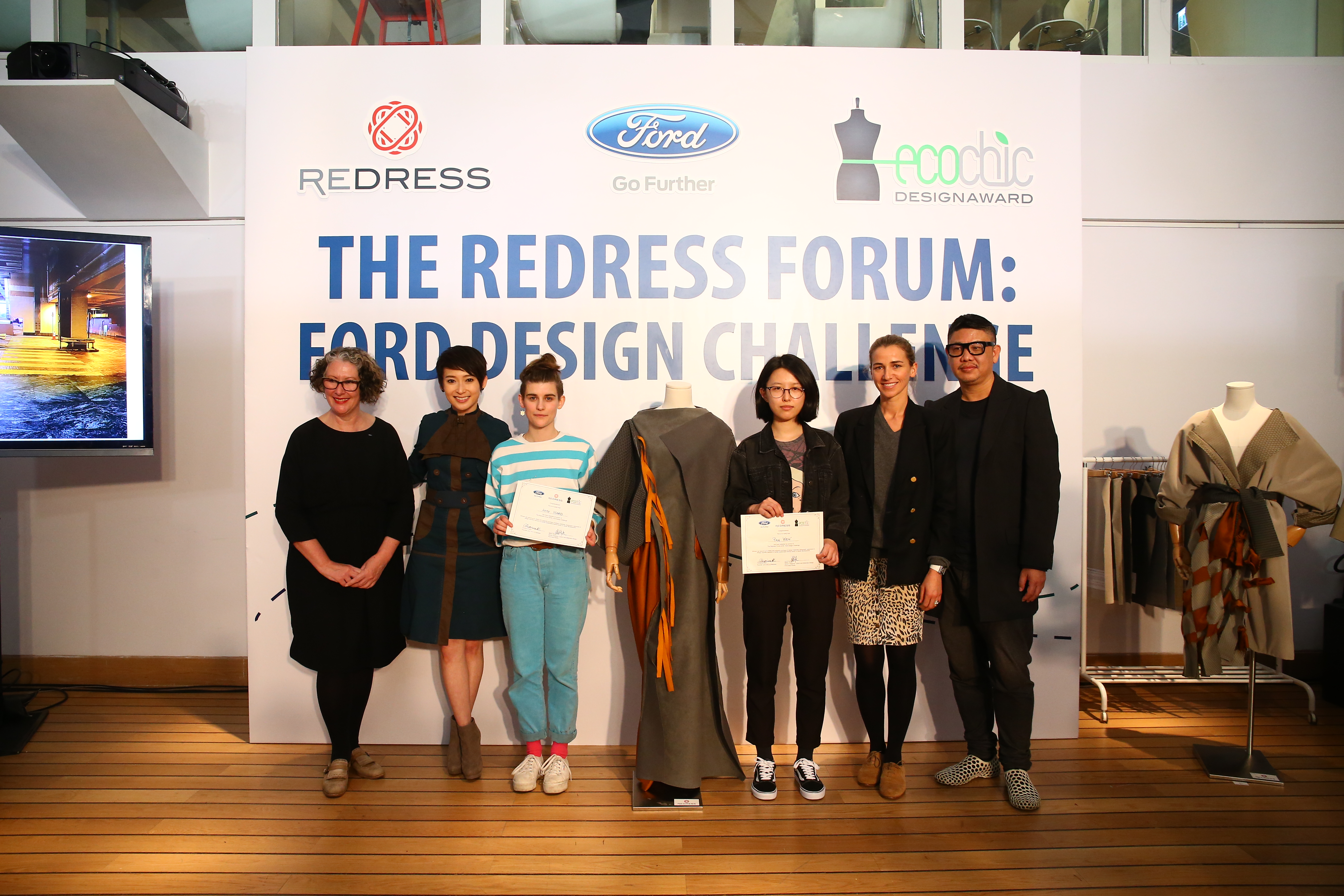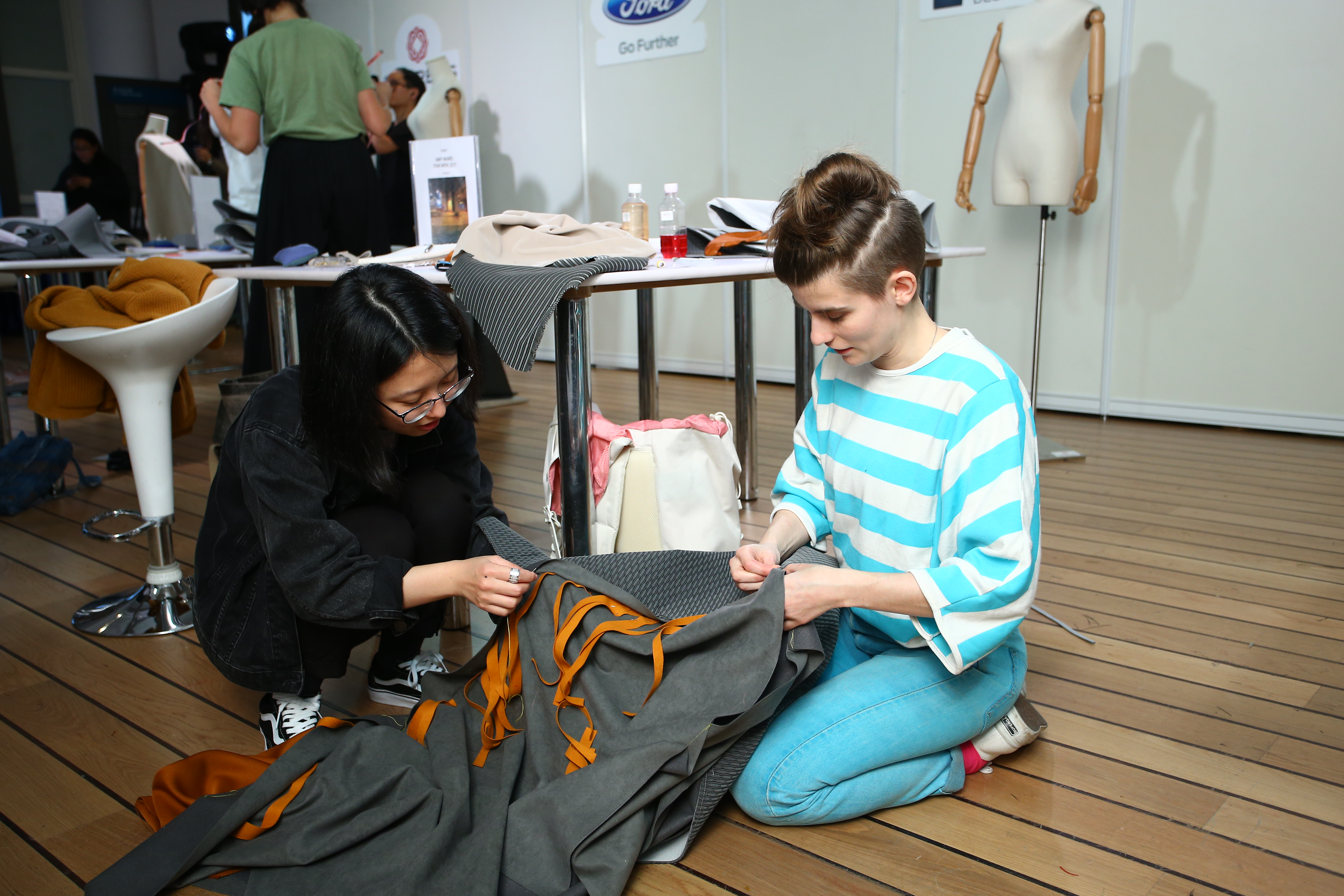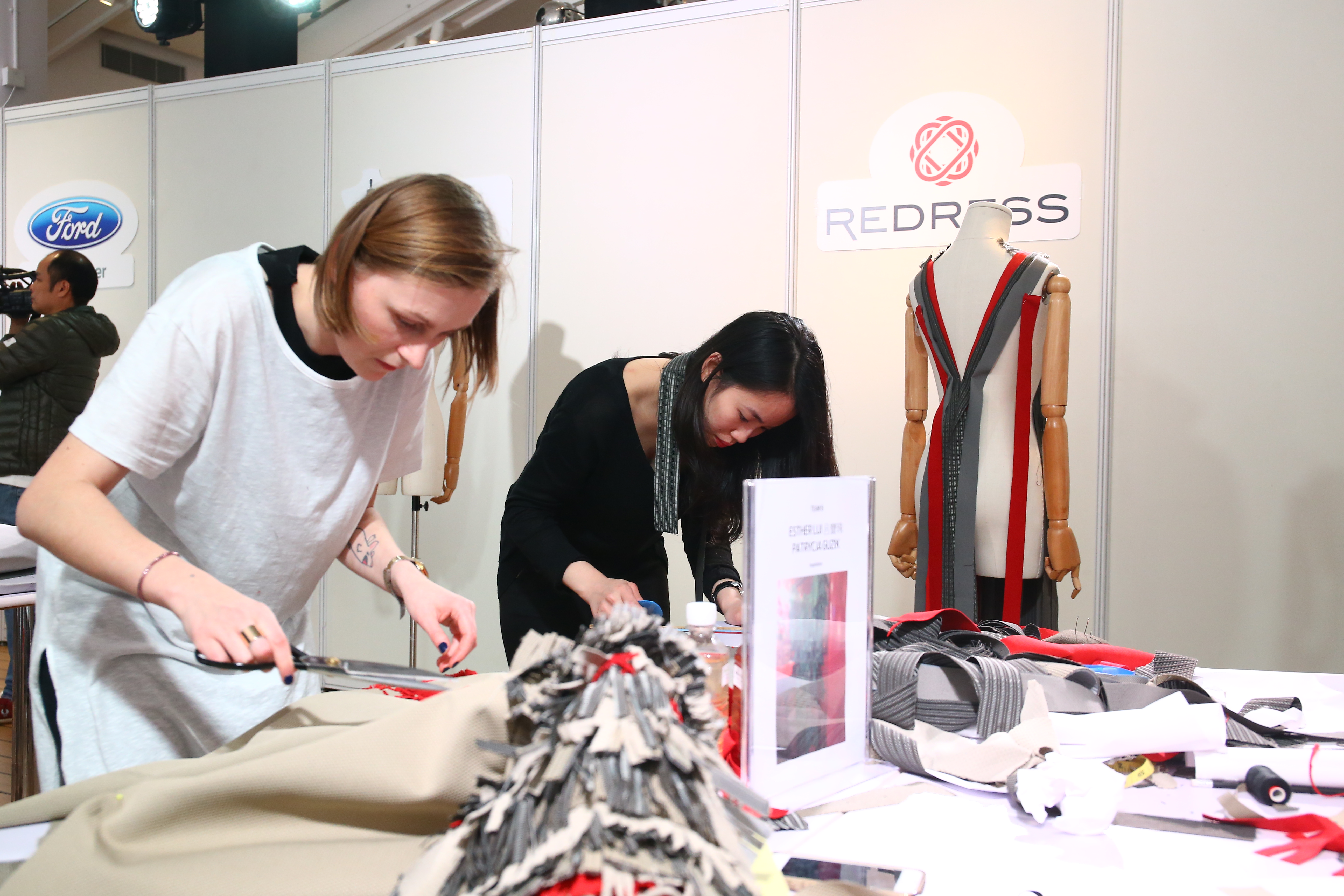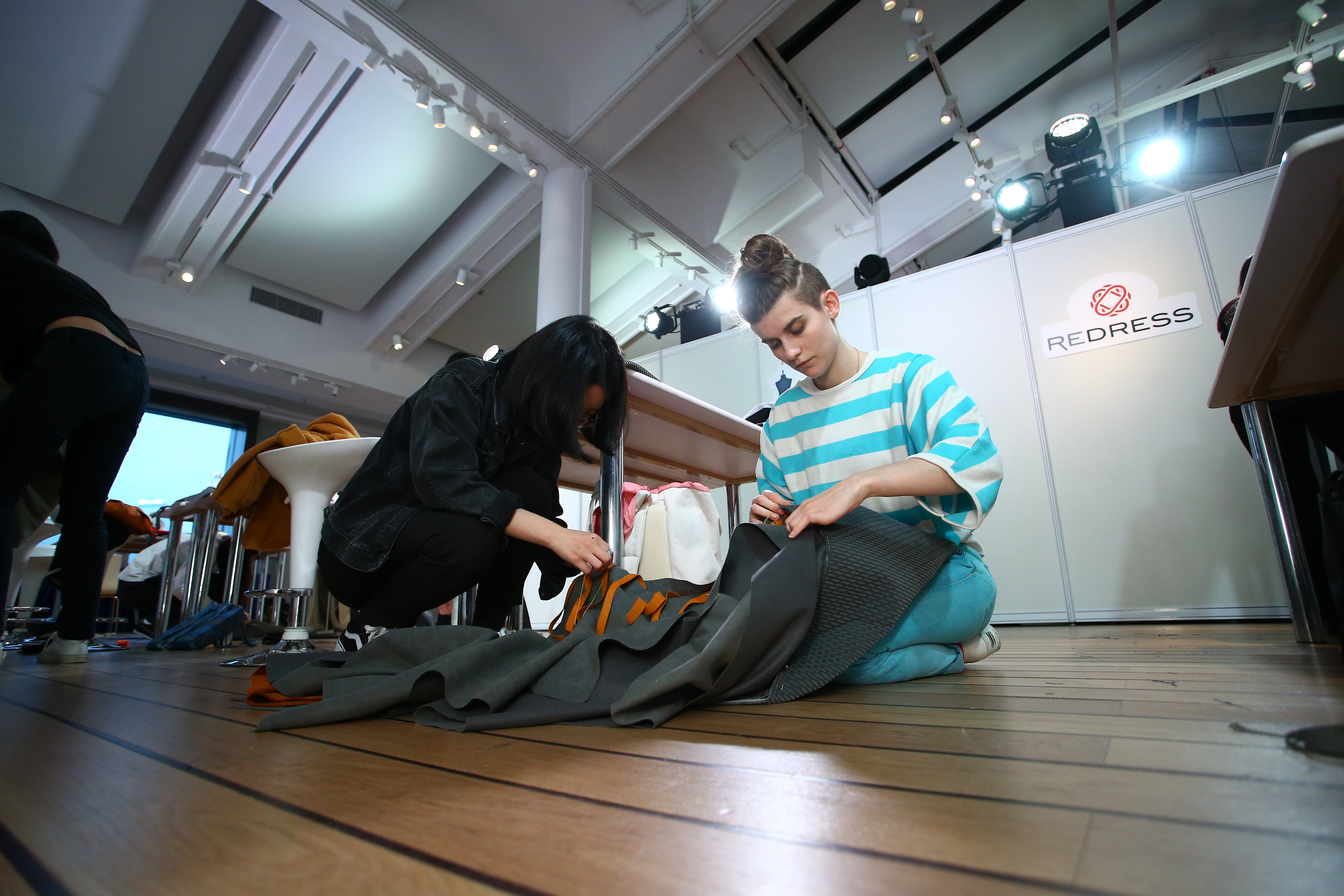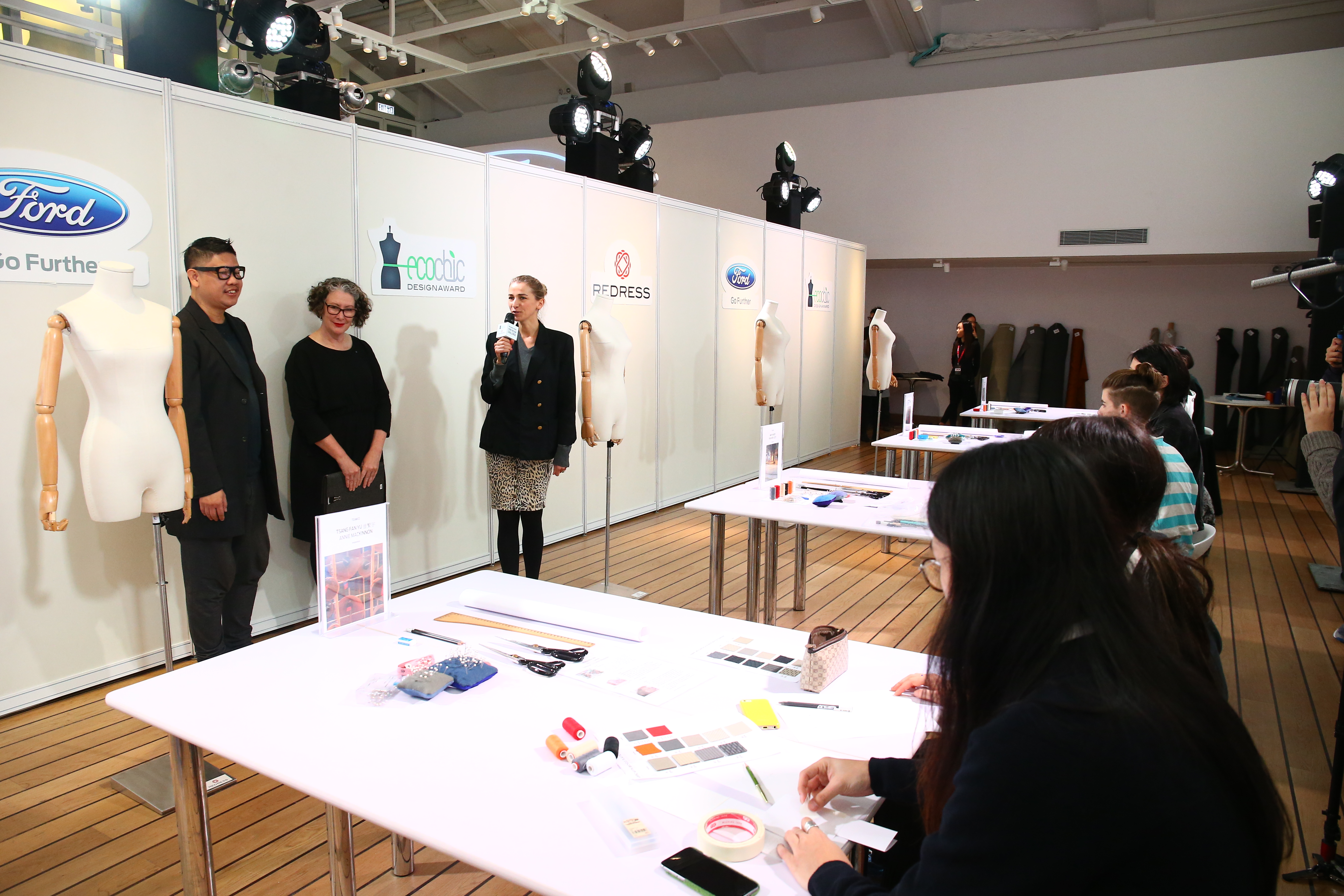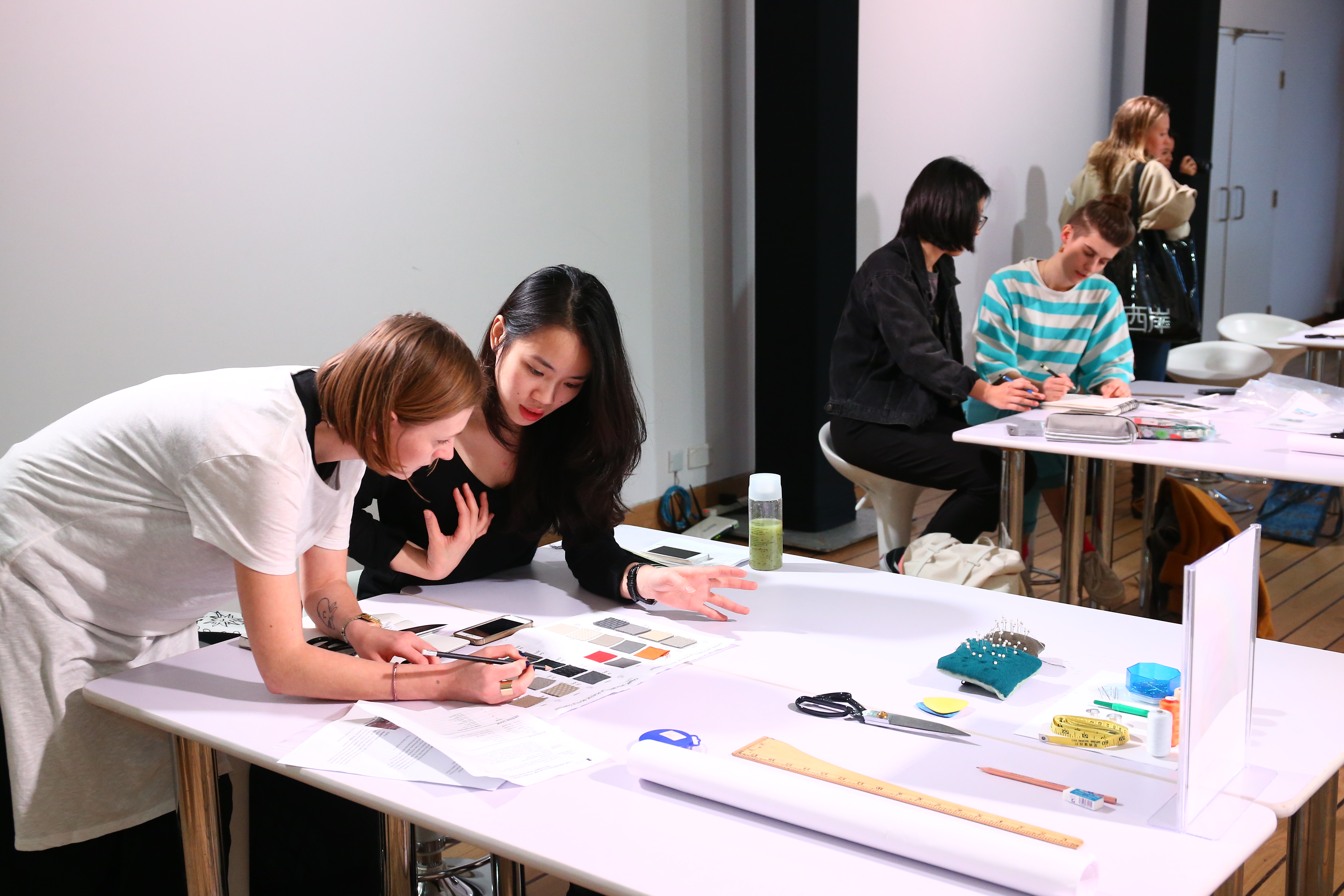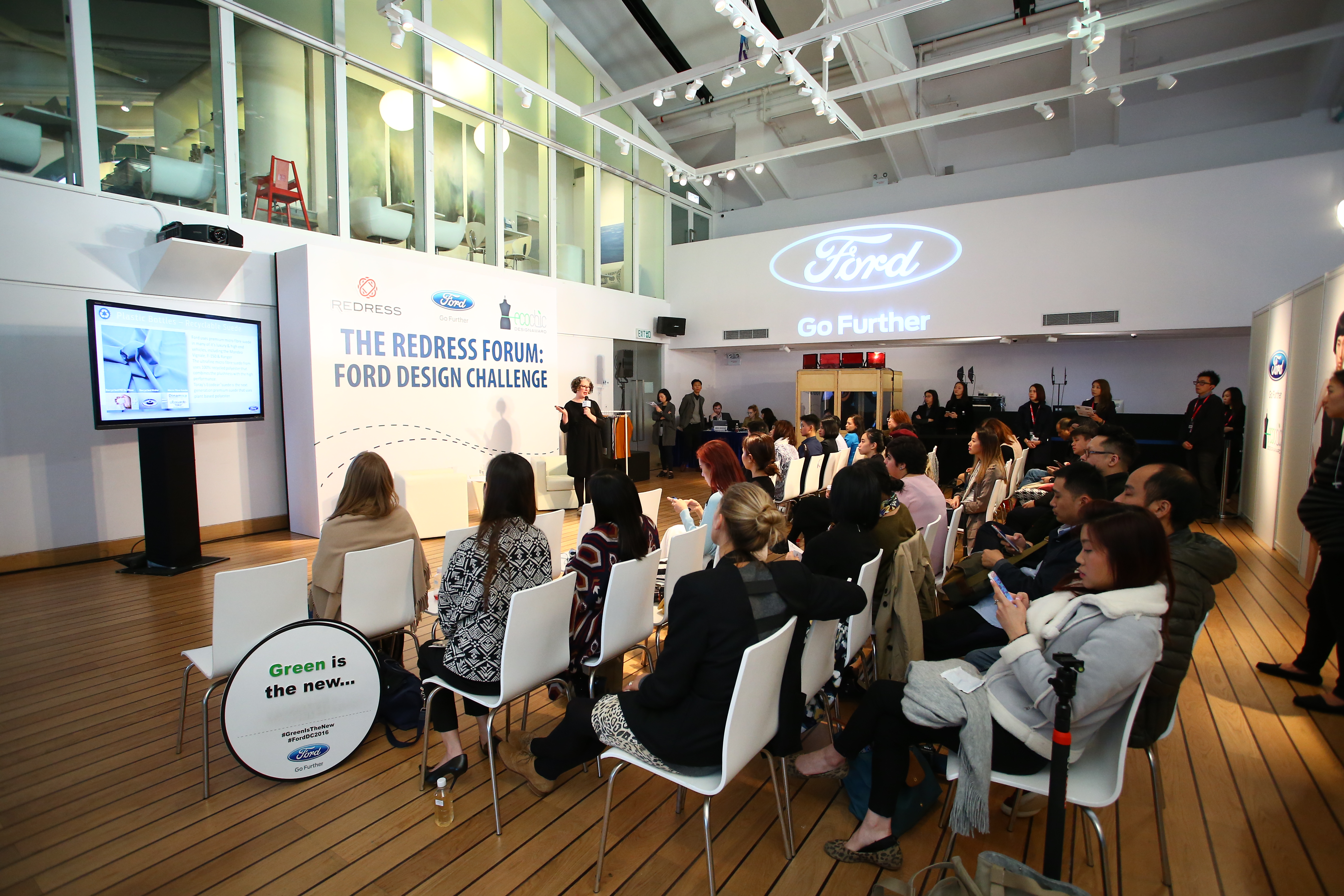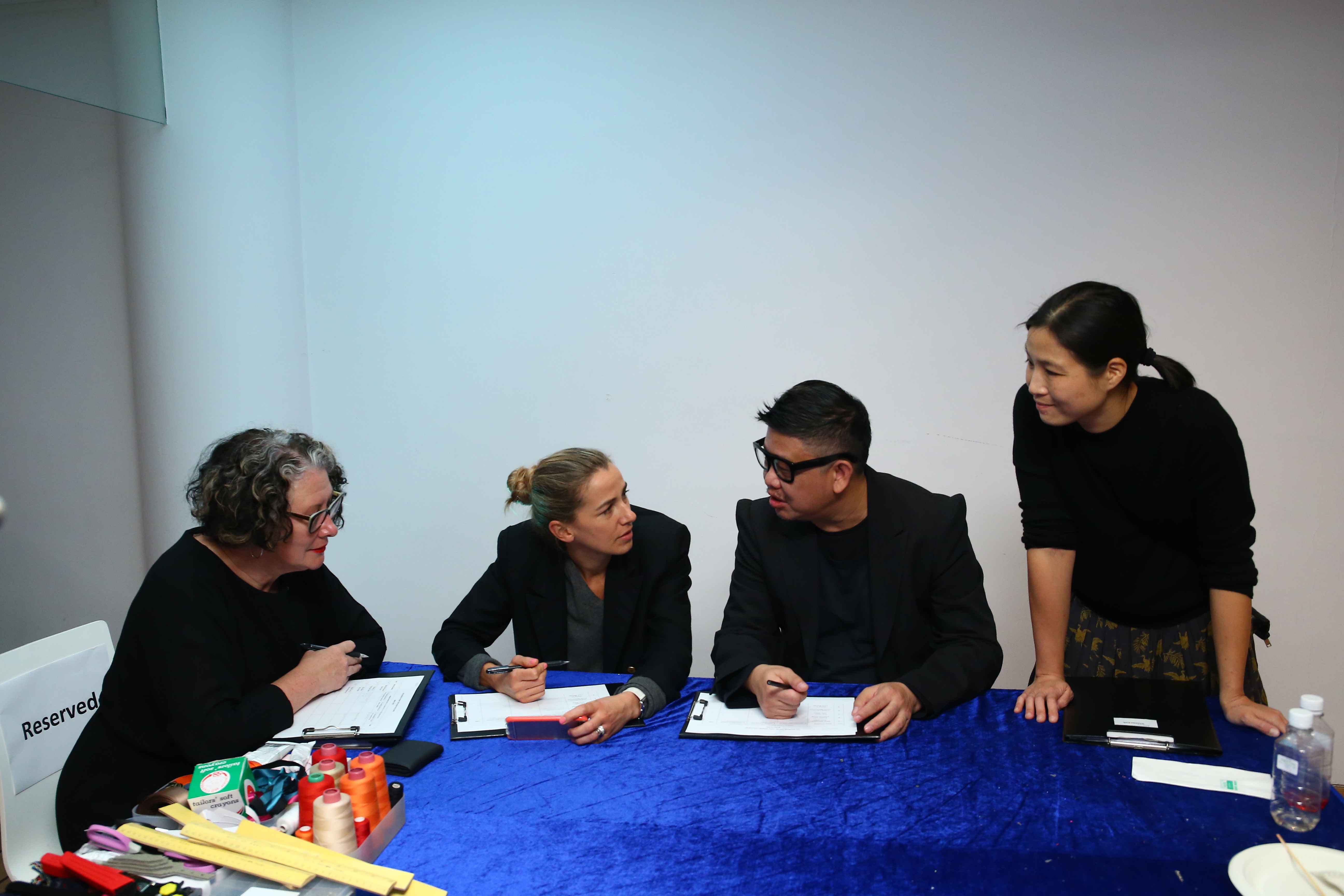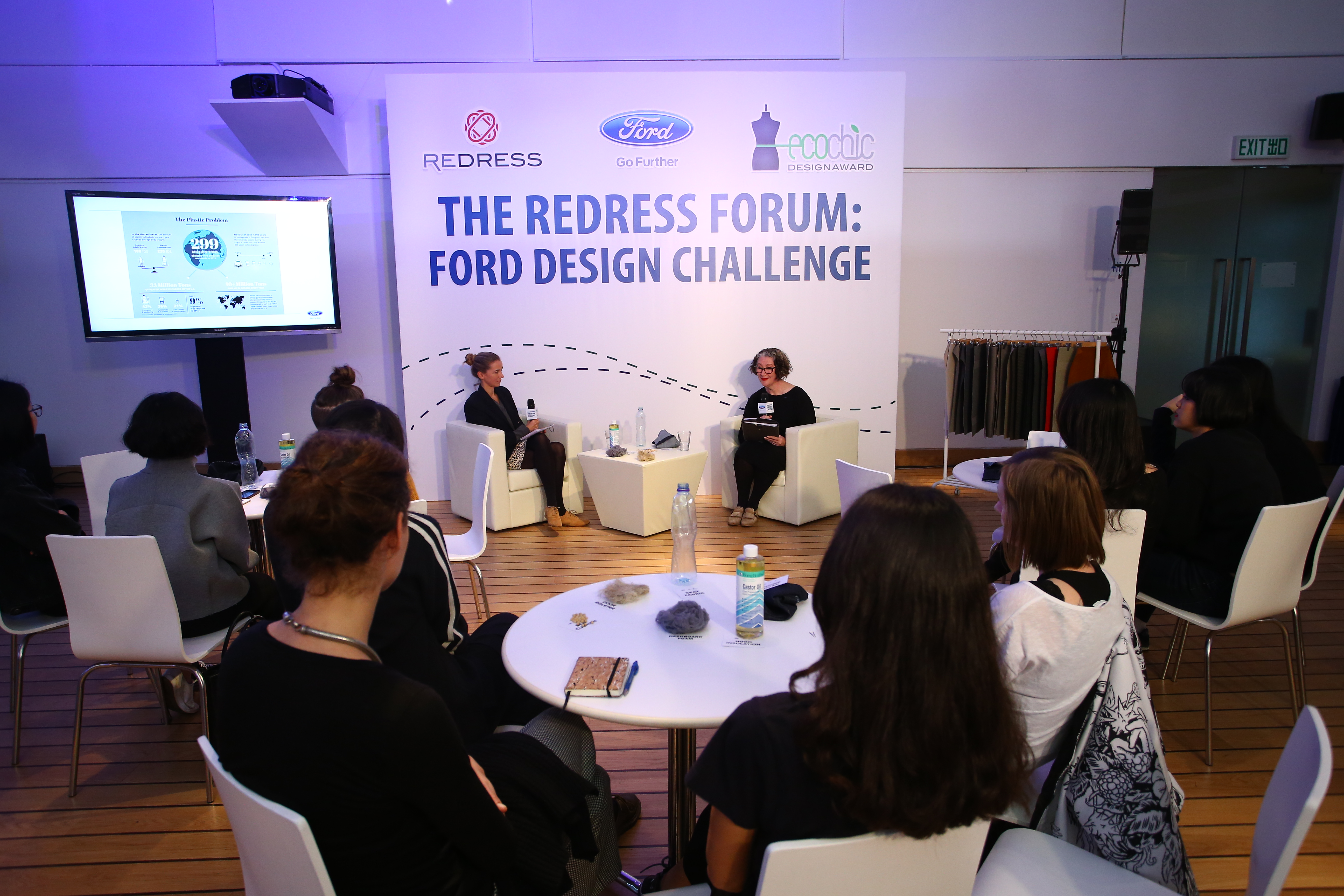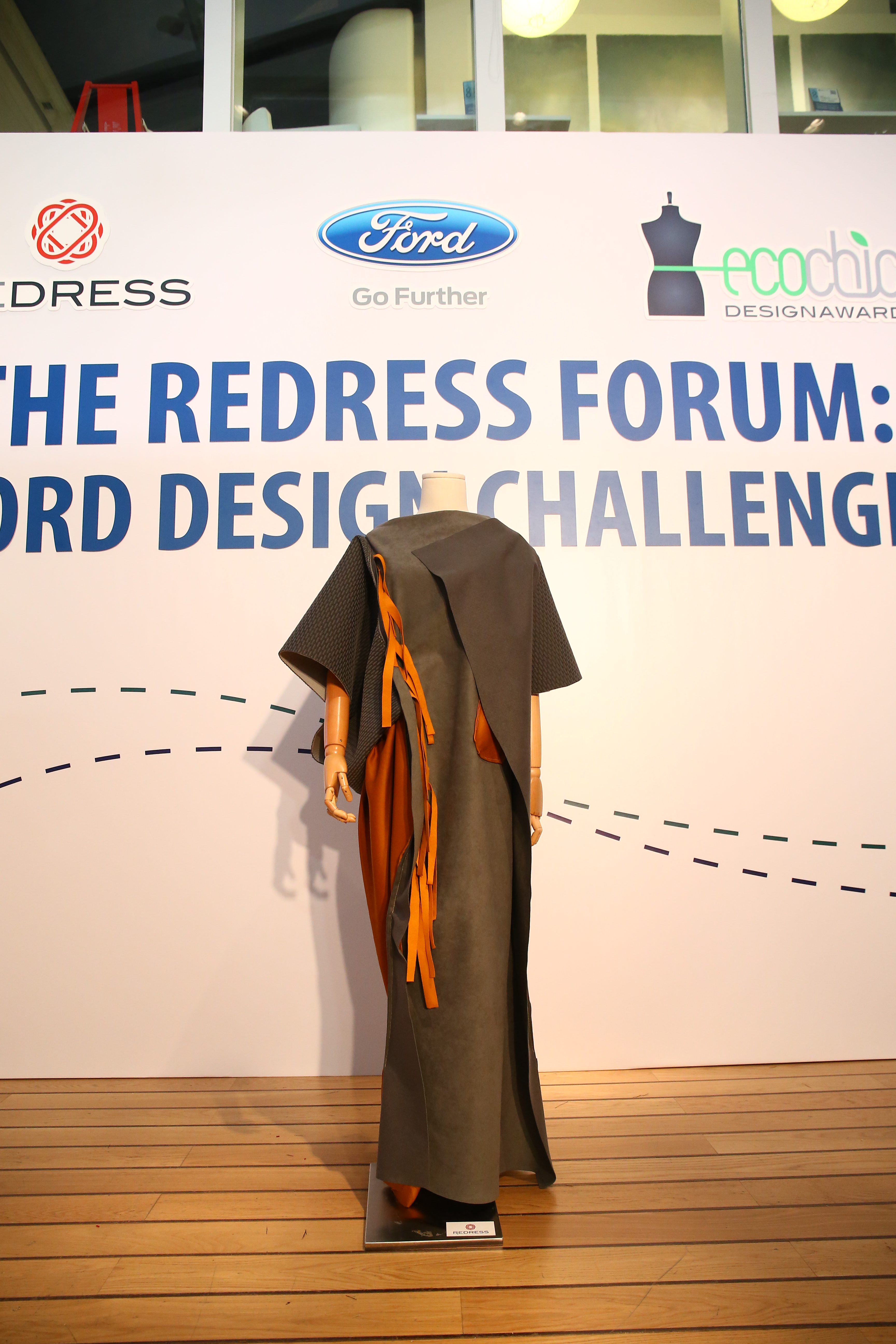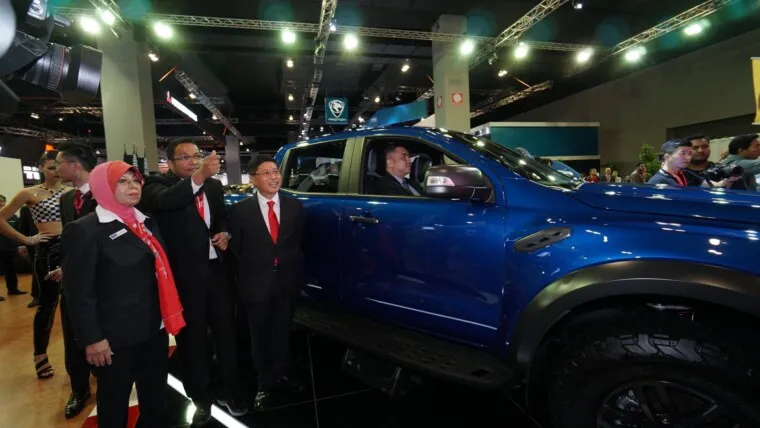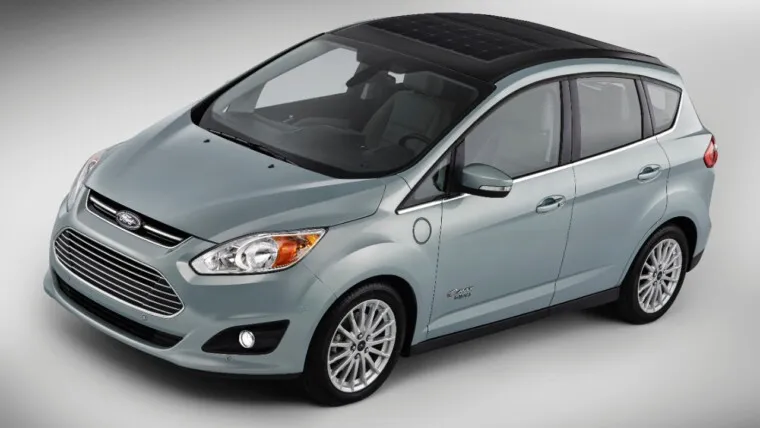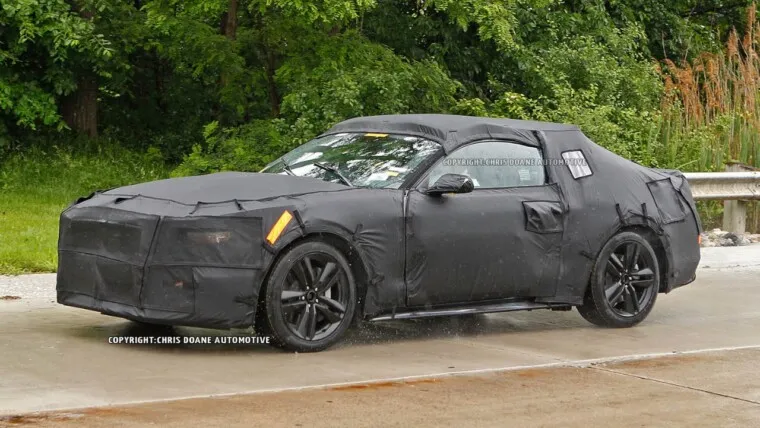Ford Motor Company and Redress have announced Pan Wen from China and Amy Ward from the United Kingdom as the winners of The Redress Forum 2016: Ford Design Challenge.
Held on January 15, the event challenged the 10 finalists of The EcoChic Design Award 2015/16 competition to create high-fashion outfits from the sustainable seat fabrics used in Ford vehicles.
The up-and-coming designers – from Hong Kong, mainland China, Thailand, Poland, Spain, and the United Kingdom – put forward an eclectic mix of designs, ranging from couture dresses to spiritually inspired suiting.
The winning piece was a floor-length asymmetrical dress in hues of neutral fabrics and contrasting copper, and was inspired by a quiet underpass on Hong Kong’s famous Victoria Peak, near where tourists take shots of the city’s iconic skyline. The design itself embodies the sustainable fashion industry.
“With visible construction and hidden details, we wanted to create something that forces the wearer to dig a little deeper and to get to know the garment,” said Amy Ward. “Rather than picking an obvious skyscraper for our inspiration, we looked closer and liked the industrial feeling of the location, focusing in on the finer details.”
The award-winning outfit was handcrafted in just three-and-a-half hours, following an educational workshop about the impact of design on product sustainability. The dialogue in the workshop promoted cross-industry thinking for sustainable solutions.
All the outfits created in the challenge will be showcased on the runway at HKTDC Hong Kong Fashion Week, as part of The EcoChic Design Award 2015/16 grand finale show. This will be Ford’s sustainable seat fabric debut at an official Fashion Week show.
“At the design challenge, we armed these talented designers with off-cuts of our sustainable seat fabrics – which are made from recycled plastic water bottles,” said Marie Smyth, senior designer, Color and Materials Design, Ford Asia Pacific. “We wanted to give them the opportunity to work with this alternative material and show them that eco-friendly fabrics can come from surprising sources.
“As designers, we constantly need to look to the horizon – both in regards to style forecasts and the environmental challenges ahead. When we sit down to design a product, we always look for new ways to reduce its environmental impact. So when it comes to sustainability, designers have a huge responsibility – one that we are passionate about.”
Christina Dean, founder and CEO, Redress, said, “Every industry needs to take responsibility – and innovate – for a much-needed shift in business thinking to safeguard the future of our planet.
“Textile waste is an increasing problem in many countries, as clothing production and consumption continues to increase. This is the second year in a row that we have teamed up with Ford, and we are so thrilled to be working with them to raise awareness about innovative ways to reduce waste through better design. Sustainable design thinking is as relevant for fashion as it is for the automotive industry.”
“We were expecting the materials at the challenge to be a lot heavier and more difficult to manage, but were surprised at how easy they were to work with,” said Pan Wen. “Working with Ford’s fabric today has definitely inspired me to look for more sustainable fabrics in my future designs.”
Ford’s sponsorship of The EcoChic Design Award 2015/16 reflects the company’s long-standing and growing commitment to sustainable design research. Beyond seat fabrics, Ford produces storage bins using wheat-straw, dashboards padded with scrap cotton from recycled jeans, and seat foam from a bioplastic made from soybeans.
Today, the company continues to experiment with new biomaterials, including the use of tomato fibers from discarded tomato skins, seeds and stems, and retired U.S. currency, to offset petroleum use in producing bins and other plastic parts for vehicle interiors. Research teams are also experimenting with biomimicry to develop a new sustainable adhesive for use under the hood. These efforts are all part of Ford’s global sustainability strategy to lessen its environmental footprint.


